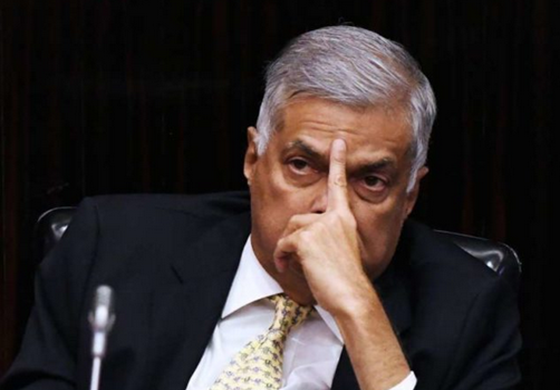-By A Special Correspondent

(Lanka-e-News -23.July.2025, 11.00 PM) In a landmark ruling that underscores the legal limits of executive authority, the Supreme Court of Sri Lanka has determined that the emergency regulations imposed by then-Acting President Ranil Wickremesinghe in July 2022 constituted a breach of fundamental human rights.
The judgment, delivered by a majority of a three-judge bench, comes in response to a series of petitions filed by civil rights advocates, including the Centre for Policy Alternatives (CPA), former Human Rights Commissioner Ambika Satkunanathan, and representatives from youth movements such as Sandun Thudugala and the Liberal Youth Movement. The petitioners had challenged the legality and constitutional basis of the emergency measures introduced amidst the height of the 2022 people’s uprising – widely referred to as the “Aragalaya”.
On July 17, 2022, Wickremesinghe, serving as Acting President following the dramatic resignation and departure of Gotabaya Rajapaksa, issued a sweeping series of emergency regulations under Section 2 of the Public Security Ordinance. These regulations, enforced ostensibly to quell mass protests and reassert control over state institutions, granted broad powers to the police and military, including arrest and detention without warrant, curfews, and the prohibition of public gatherings.
The Supreme Court, however, in its majority ruling authored by Chief Justice Jayantha Jayasuriya and Justice Yasantha Kodagoda, found that these regulations had no reasonable or justifiable legal basis and were in clear violation of constitutionally guaranteed rights to freedom of expression, assembly, and protection from arbitrary arrest.
“The emergency regulations promulgated by the Acting President exceeded the permissible scope of executive authority,” the Court held. “They were both ultra vires and devoid of proportional justification under the circumstances prevailing at the time. Fundamental rights are not suspended by convenience.”
In a dissenting opinion, Justice Arjuna Obeyesekere contended that the emergency was justified by the volatile security situation in the country and did not, in his view, constitute a disproportionate infringement of basic liberties.
The case drew wide attention from both local and international observers, particularly given the chilling images that emerged during the crackdown, including mass arrests of protestors, suppression of dissent, and the military’s occupation of the Galle Face protest site.
Human rights campaigners and legal experts have hailed the ruling as a vital precedent affirming judicial oversight in times of constitutional stress.
“This is a profound vindication of the people’s struggle and the importance of institutional checks,” said Ambika Satkunanathan, one of the principal petitioners. “It makes clear that even in times of national unrest, the executive cannot behave with impunity.”
The Court further ordered the State to pay the petitioners’ legal costs, reinforcing the government’s accountability for unlawful use of state machinery.
The ruling comes at a politically sensitive moment for President Wickremesinghe, who is widely expected to announce his intention to contest the upcoming presidential election despite a legacy tarnished by his handling of the 2022 crisis and his perceived closeness to the Rajapaksa political dynasty.
Wickremesinghe’s defenders have argued that his measures helped stabilise a nation on the brink of collapse. But critics point to this Supreme Court judgment as yet another indication of his administration’s authoritarian tendencies.
In the wake of the ruling, several diaspora human rights organisations and activists have urged the United States Department of State to impose a travel ban on President Ranil Wickremesinghe under the Global Magnitsky Act, citing his role in sanctioning human rights violations during his short stint as Acting President.
“Ranil Wickremesinghe has now been found by the apex court of his own country to have violated fundamental rights during a period of emergency,” said Kavita Subramaniam, Director of the Global Accountability Network. “The United States must act decisively and demonstrate its commitment to democratic norms by designating Wickremesinghe for sanctions.”
The U.S. has in recent months escalated its scrutiny of Sri Lankan leaders accused of human rights abuses. In 2023, it placed travel bans on former Navy Commander Admiral Wasantha Karannagoda and former President Mahinda Rajapaksa’s staffers for their alleged involvement in war-time atrocities.
Should the call for sanctions against Wickremesinghe gain momentum in Washington, it would mark a significant diplomatic blow for Sri Lanka’s sitting head of state, whose government is already under international pressure over issues ranging from judicial independence to IMF-mandated economic reforms.
As the political class grapples with the implications of the judgment, activists insist that the lesson of 2022 remains clear.
“The will of the people cannot be stifled by brute force and legal sleight of hand,” said protest leader Sandun Thudugala. “This ruling is a warning not just to Wickremesinghe, but to all future leaders who might consider using emergency powers as a weapon against democracy.”
---------------------------
by (2025-07-23 17:57:42)
Leave a Reply